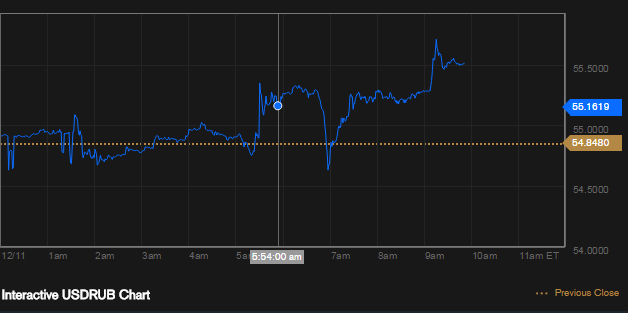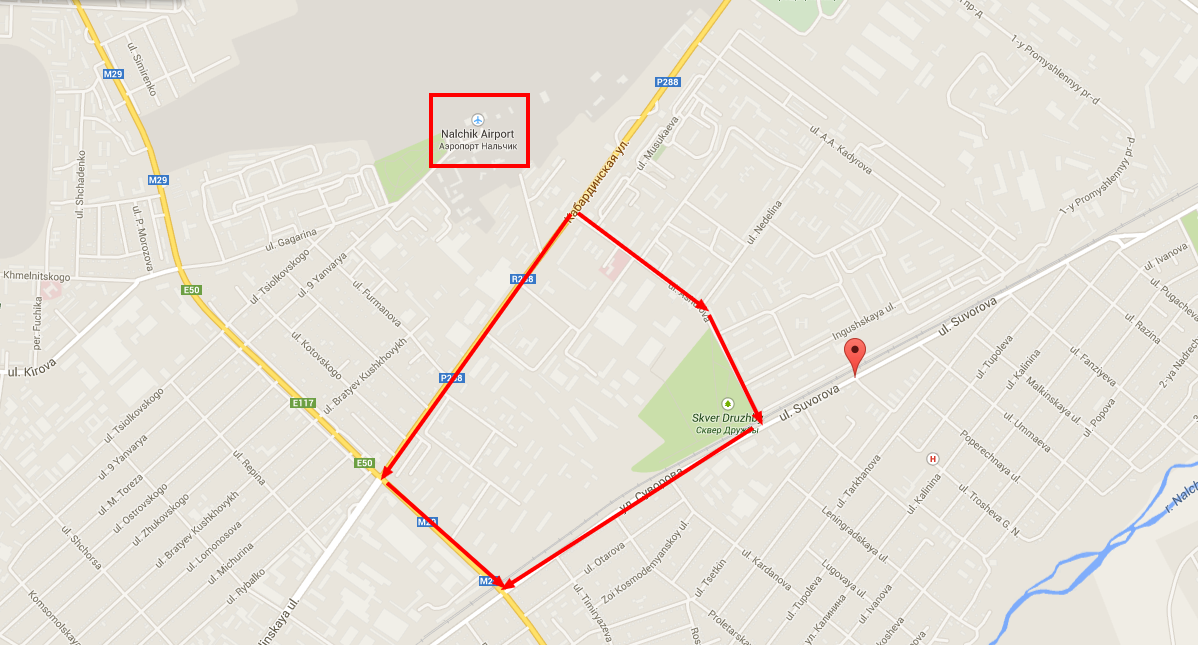Welcome to our column, Russia Update, where we will be closely following day-to-day developments in Russia, including the Russian government’s foreign and domestic policies.
The previous issue is here, and see also our Russia This Week feature on disarray in the Kremlin’s Ukraine policy shop; ‘Managed Spring’: How Moscow Parted Easily with the ‘Novorossiya’ Leaders and Putin ‘The Imperialist’ A Runner-Up For Time’s ‘Person of the Year’
Four gunmen opened fire on police in Nalchik in the southern this morning after negotiations broken down, and were killed in retaliatory fire after setting off an explosive device, according to the Russian National Anti-Terrorist Committee.
Please help The Interpreter to continue providing this valuable information service by making a donation towards our costsâ€.
UPDATES BELOW
The Progress Party headed by opposition leader and anti-corruption blogger Alexey Navalny has been denied registration.
Translation: A court in Moscow ruled that the decision of the Ministry of Justice was lawful to refuse to include the Progress Party (leader: A. Navalny) in the list of parties allowed in the elections.
Translation: Gagarin Court: “Progress Party does not have the right to take part in the elections.” Ministry of Justice’s argumentation “just because” turned out to be convincing for the court.
Navalny and his lawyers have tried repeatedly to get the party registered, changing its name from Popular Alliance and filing more information on request. The last decision is the answer to an appeal of the rejection, and is final.
Navalny ran in the Moscow mayoral elections last year, getting more than 27% of the vote as an independent candidate. He was allowed to return to Moscow after being handed a suspended court sentence on charges of embezzlement related to a lumber company in which he was part-owner.
The charges, like other criminal charges currently pending related to “art theft” and “embezzlement,” are believed to be fabricated. Navalny is currently under house arrest. One trial, related to business dealings he and his brother had with the French company Yves Rocher East, is currently in session, although the French executives say they have no claims against the Navalnys.
— Catherine A. Fitzpatrick
Bloomberg had a special feature yesterday December 10 on the windfalls that President Vladimir Putin’s cronies have gained since Western sanctions were imposed in March in response to Russia’s war on Ukraine.
Putin’s boyhood friend and judo partner Arkady Rotenberg and his brother Boris, as well as Putin confidant Gennady Timchenko — all under US sanctions — have won a total of 309 billion rubles (or $8.1) in contracts so far this year (using the average exchange rate over this period). This follows the billions in Sochi Olympics contracts they won in past years; more and more those closest to Putin are the winners:
“Not only is the pie shrinking more rapidly than originally anticipated,
the political imperative of preserving some people’s slices means
thinner slivers for everyone else,” said Mark Galeotti, a Russia expert
and professor at New York University.
Still to come are the contracts associated with the $400 billion
Strength of Siberia pipeline to the Far East; Rotenberg-affiliated
companies were already paid $1.7 billion to stage an opening ceremony
for the pipeline in September, says Bloomberg. And there is the $4 billion Kerch bridge:
A Rotenberg-affiliated company is also about to secure a 228-billion-ruble order to build a bridge to Crimea, which Russia annexed in March, according to a high-ranking government official, who spoke on the condition of anonymity because the contract hasn’t been officially awarded...
In all, companies linked to Rotenberg and Timchenko have received orders since March that are equivalent to more than a fifth of what the government spent on contracts in the first nine months of the year.
TASS reported on December 9 that Timchenko was turning down the opportunity to build the Kerch Strait bridge (translation by The Interpreter):
This is a very difficult project for us. I am not confident that we would cope. I don’t want to take on reputational risks for myself. It isn’t clear what the cost will be, and there is no blueprint. No one understands what the geology is there. And we don’t understand. Therefore it is a very risky story. I simply fear taking it on and then not have the strength.
But according to TASS that left six other major infrastructure companies still interested, according to Roman Starovoit, head of Rosavtodor, the Russian highway authority. Among these was Russian Railways and, as Bloomberg’s source indicated, Rotenberg’s Stroygazmontazh (SGM Group) or Mostostrest, another construction company in which Rotenberg holds a 26% stake.
The Kerch bridge contract, which would link the Russian mainland with occupied Crimea, is vital for Russia to maintain its occupation.
Caucasian Knot reported that 660 vehicles were waiting in line to cross the Kerch strait by ferry on December 10. This reduced by 120 vehicles today, December 11, including about 110 trucks with freight, transport authorities reported.
Caucasus Knot keeps regular traffic reports on the Kerch ferries, noting on December 9 that the line went from 950 to 820; on December 7 it was at 1,200, says Censor.net. Four ferries are currently operating, and winter weather with strong winds sometimes cause halts in service. Reports of these long waits for days and particularly the reluctance of tourists to sit in line to cross the Kerch Strait are pressuring officials to build the bridge.

— Catherine A. Fitzpatrick
The importance of Putin’s recent aggression in changing the state of geopolitics should not be understated. The history of Europe for the better part of a generation has been the reduction of military force, and yet Poland is once again purchasing long-range missiles and other weapons, specifically to deter the Russian threat. RFE/RL reports:
Polish Defense Minister Tomasz Siemoniak has said that long-range missiles Warsaw is buying from the United States are especially needed by Poland because of current tensions in the region.
Siemoniak also complained of “unprecedented” recent activity by Russia’s navy and air force in the Baltic Sea region — saying the majority of the incidents involved Russian operations in international waters.
Siemoniak, speaking on December 11 at a signing ceremony for the $250 million deal, said the new U.S. missiles are the most modern military equipment Poland has ever purchased.
The purchase includes 40 joint air-to-surface missiles that are to be integrated into the Polish Air Force’s three tactical squadrons of F-16 fighter jets.
— James Miller
The militants killed this morning in Nalchik by police were preparing a terrorist attack on the Kabardino-Balkaria Border Service, a source in the National Anti-Terrorist Committee (NAC) told Caucasian Knot, an independent regional news service. They were not identified.
A fire broke out in the building where the fighters reportedly set off an improvised explosive device (IED).
The NAC has supplied a video showing firemen putting out the fire on the second floor of the building in the north of Nalchik. There were no injuries.
Law-enforcers say the discovery of the IED with destructive agents and
a capacity of three kilograms of a TNT equivalent indicates a
terrorist attack was being prepared. The bomb was detonated during the
gunfight.
Two machine guns and a pistol were also reported to be found in the apartment.
The
NAC said the terrorists were from the so-called central sector of the Vilayat of Kabarda-Balkaria-Karachai, part of the Caucasus Emirate, included on the US list of terrorist groups since 2011. They were “actively gathering information about the FSB and Interior
Ministry agents,” said law-enforcers, although they did not say how they came to that conclusion.
Authorities
said they believe the militants deliberately rented the apartment near
the border guard facility in order to do reconnaissance on the building
for the purpose of staging a terrorist attack.
Today’s
shoot-out is the 23rd one this year, and brings to 46 the number of
people killed during police operations against suspected terrorists this
year in Kabardino-Balkaria, says Caucasian Knot. These include 42
people involved in the armed underground, according to police; 1
civilian; and 4 policemen. The number of those wounded was 17, including
1 militant, 1 civilian and 15 policemen.
It was the second attack in
the capital this year; the last one was in March, during which five
suspected terrorists were killed. During a document check, two unidentified
men threw a bomb at two police officers, injuring one. Police also
injured one of the attackers, but he managed to escape. Police then shot
dead 5 militants in a private home during a man-hunt.
Last year, 92 people were killed and 31 wounded in police operations against terrorists. Russian forces have killed about 350 militants in the North Caucasus this year.
Translation: From the news: Will Nalchik or New Delhi make the weather for us today?
— Catherine A. Fitzpatrick
Despite the efforts of the Russian government to stabilize the currency, the ruble dropped another 1.21% against the dollar today, dropping to 55.51 rubles per USR according to Bloomberg:

The Russian economy is heavily reliant on the price of oil. Oil is also down once again. A barrel of WTI crude is down .79% and Brent crude is down .36%. Nasdaq provides a graph of the WTI over the last 7 days:

Though dropping oil prices are clearly one reason for the ruble’s slide, it’s not the only reason. However, efforts of the Russian government to stop the ruble’s decline may have little chance of succeeding as long as oil remains this cheap.
Yesterday Russia raised its interest rates for the fifth time this year to stem the tide of the currency devaluation. It didn’t work. Bloomberg reports that the move, raising rates by 1%, appears to have been inadequate:
The Bank of Russia increased its key rate to 10.5 percent from 9.5 percent, according to a website statement. That matched the median estimate of 34 economists surveyed by Bloomberg. The ruble traded 0.7 percent weaker at 55.24 per dollar at 3:27 p.m. The bank is holding a news conference on the rate move.
“This is a spineless decision,” Vadim Bit-Avragim, who helps oversee about $4 billion at Kapital Asset Management LLC in Moscow, said by phone. “If the central bank’s goal was to defend the ruble, it would’ve raised rates by 2-3 percentage points.”
The rate increase shows the narrowing options left to policy makers after they spent about $80 billion on defending the currency and shifted to a free-floating exchange rate ahead of schedule last month. The central bank has said it’s ready step in at any time to prop up the ruble amid a depreciation that’s wiped out 40 percent of the currency’s value this year. Its reserves fell $4.3 billion last week to $416.2 billion.
Later today we’ll address two key issues: will this have a political impact on Putin, and what does this mean for Russia’s support for the Russian-backed separatists in eastern Ukraine.
— James Miller
Authorities have called off the “counter-terrorism operation regimen” (CTO) in Nalchik in a neighborhood by the airport where four gunmen were shot dead by police after they reportedly set off an explosive device, RBC.ru reported, citing Interfax. Residents had earlier been evacuated from the building.
As we reported earlier, the National Anti-Terrorist Committee says that a home-made bomb was set off on the second floor of a five-story building.
Nalchik is the capital of Kabardino-Balkaria in the foothills of the Caucasus mountains in the south of Russia.
The streets sectioned off in the north of the city were Ashurova, Suvorova, Idarova and Kabardinskaya.

LifeNews has broadcast a video, also published on the site of Rossiyskaya Gazeta that
purports to be from today’s incident. But as there have been a number
of shoot-outs with fighters in Nalchik, it is not confirmed that this
footage is from today.
— Catherine A. Fitzpatrick
A counter-terrorism operation (CTO) regimen was declared in Nalchik, the capital of Kbardino-Balkaria after police opened fire on gunmen barricaded in a private apartment, Caucasian Knot reports, citing a law-enforcement source.
The state wire service RIA Novosti says a source told the agency that the gunmen were in an apartment in the five-story building (translation by The Interpreter):
The five-story building near the outskirts of Nalchik has been evacuated, there are fighters in one of the apartments. Their number is not known. Negotiations were held with them, but afterwards the fighters decided to put up resistance
At 10:35 Moscow time, RIA Novosti then reported that the gunmen had already been killed:
According to preliminary information, four fighters were
liquidated. This occurred as the result of an explosion of mortar. There
was possibly an improvised explosive device in the apartment where they
were located.
A source from the National Anti-Terrorism Committee (NAC) said the fighters opened fire on police first, RIA Novosti reported. A NAC source told RIA Novosti:
“During an attempt to conduct inspections, bandits who were hiding out made armed resistance. They shot at law-enforcement officers in response to an offer to put down their arms. Aftre this, the decision was made to begin the active phase of the special operation.”
The CTO was declare this morning at 7:45 Moscow time and Ashurova, Suvorova, Idarova and Kabardinskaya streets were blocked off when law-enforcers said three gunmen had barricaded themselves in a private apartment. FSB Col. O.L. Usov, head of the FSB for Kabardino-Balkaria made the decision to impose the regimen as gunfire broke out.
A reader told Caucasian Knot that an emergency SMS text from the city came on mobile phones this morning saying traffic was restricted in Nalchik. “Something is happening between Kabardinskaya and Idarova Street, we don’t know, it’s blocked off, all the traffic is being routed around,” he said.
A law-enforcement source told Rossiyskaya Gazeta that police were still searching the apartment building for more explosives.
Translation: 50 [vehicles?] near the entrance to entry no. 4, where there is Interior Ministry [police] Station No. 4 in the city of Nalchik.
Note: seports circulating on Twitter with yesterday’s and today’s date about the wounding of an officer of the Investigative Committee in Kabardino-Balkaria in the center of Nalchi appear to refer to a similar incident in November 2013. There have not been any reports of officers injured in today’s shoot-out.
— Catherine A. Fitzpatrick